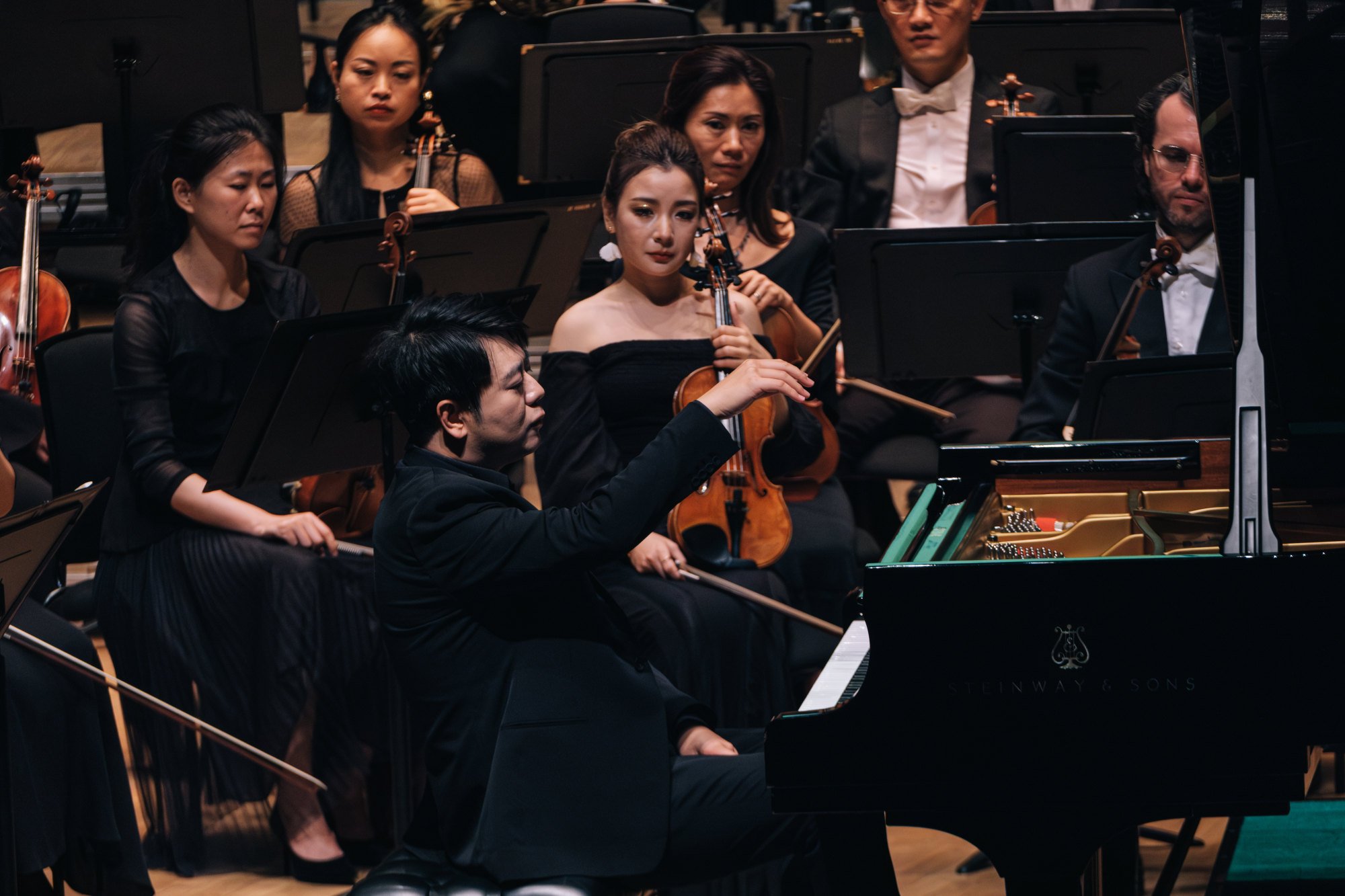Keyboard wizardry was always on the cards given Lang Lang’s style of performance, and even for the relatively light drama found in Beethoven’s Concerto No 3, expectations for the unexpected were high.

The December 15 performance lived up to those expectations. Lang Lang was intent on ramping up the dramatic tension in his early responses to the orchestra’s stately Allegro con brio introduction.
Leaving barely a stone unturned in the first movement, the Chinese pianist was fearless in delivering the full gamut of extreme dynamics and sprinklings of cheeky articulation.
60 years ago these famous siblings’ concert changed a conductor’s life
60 years ago these famous siblings’ concert changed a conductor’s life
His power-packed chords rattled the rafters – even if they did come across as too percussive on occasion – but were effectively contrasted with lyricism that was spellbindingly hushed and tender.
In the passages of accompaniment, Van Zweden and the orchestra were always fully alert to Lang Lang’s turns of nuance and his subtle use of rubato.
The solo cadenza was an absolute doozy. It brimmed with lavish splashes of colour and mischievous twists that left the full house in awe, and probably wondering what on earth he had up his sleeve next.
His playing in the second movement, the E major Largo, was worlds away from the drama that had gone before and pure poetry.

The orchestra bonded well with the soloist, with warmth in the string sound intertwined with finely shaded woodwind playing. Lang would occasionally even dwell on dissonances, resolve them at the last possible moment, and thereby enhance the movement’s sense of timelessness.
The star pianist’s signature showmanship and fluid hand gestures fully reflected the abundant joy found in the Rondo finale. The brief interlude of bliss that recalled the Adagio’s lyricism was delightful in its respite, and led eventually to an explosive coda that concluded the concerto in thrilling fashion.
For his two encores, Lang started with variations on Kermit the Frog’s “Rainbow Connection” from his Disney album, followed by a whirlwind take on one of Bach’s Goldberg Variations that, plucked and taken out of context, resembled more of the fluid cascading found in Debussy’s impressionism than Bach.

The concert began with somewhat of a curiosity – Italian postmodernist Luciano Berio’s transcription of the “Contrapunctus XIX” from Bach’s The Art of Fugue.
Given the emphasis on woodwind instruments in this work for 23-piece ensemble, the textures were dense and organ-like, leaving the skeleton strings at the front of stage somewhat stranded and comparatively thin in sound.
Nonetheless, Berio’s quasi amen to Bach in using the dissonant pitches B-A-C-H (B-flat, A, C, B-natural) provided an interesting conclusion to the quadruple fugue, even though this “completion” of the German master’s great temple of counterpoint seemed an odd choice as an opener.
The conclusion to the programme was just as random – a rousing rendition of Aaron Copland’s fanfare-filled Symphony No 3 with its hefty slice of Americana.
Van Zweden coaxed ample “simple expression” (as per Copland’s score) from the Phil in the beginning and ensured enough warmth in the string sound to aptly depict the easy-going lushness commonly found in Hollywood film scores.
Pianist Lang Lang releases Disney album, plans Hong Kong Disney/Bach show
Pianist Lang Lang releases Disney album, plans Hong Kong Disney/Bach show
The brass were at the top of their game in the more dramatic middle section, and the high bar they set was well matched by the full orchestra’s energy and panache in a thoroughly exuberant second movement – part and parcel of a stellar performance by the Hong Kong Phil.
In the haunting Andantino, the first violins soon found solid footing in their intonation in the high and finicky passages, before eventually settling into quiet solitude.
The references to the composer’s more popular work Appalachian Spring sparkled in the midsection, as did the entire orchestra as Van Zweden steered them expertly through the finale, relishing all the manifestations of Copland’s rousing Fanfare for the Common Man along the way.
Jaap and Lang Lang, Hong Kong Philharmonic, Hong Kong Cultural Centre Concert Hall. Reviewed: December 15.
